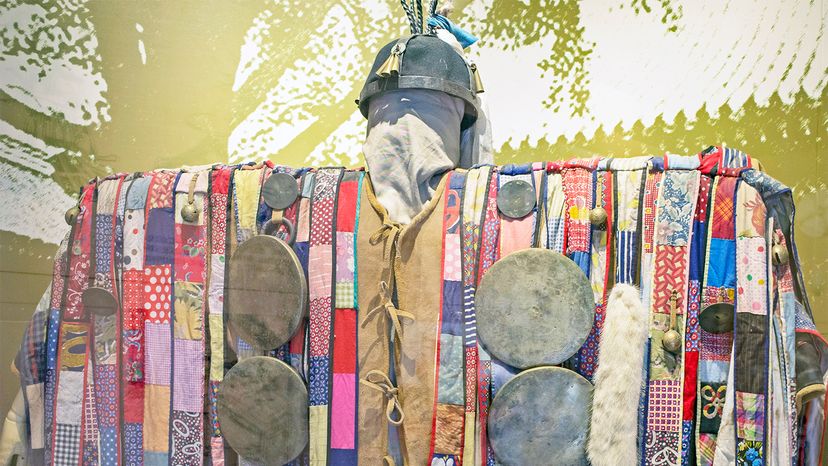Shamanism itself isn't tied to any single culture, but experts say the term "shaman" originated from the Tungus tribe in Siberia. The noun is formed from the verb ša, which means "to know," so the term "shaman" literally translates to "one who knows."
While there are spiritual and mystical connotations to the term, Villoldo is careful to point out that the term "shaman" in and of itself is in no way tied to a specific religion or creed. "Lots of people believe that shamanism is a religion," he says. "While a number of religions may have evolved from shamanic tradition — and many shamans around the world may also identify as members of organized religions — shamanism is a spiritual practice."
A variety of formal religions are said to have roots in ancient shamanic traditions, but the specific practices and beliefs vary. According to the University of Minnesota's holistic health site, Taking Charge of Your Health & Wellbeing, shamanism is a "group of activities and experiences shared by shamans in cultures around the world. These practices are adaptable and coexist with different cultures, systems of government and organized religious practices."
In her book, "An Encyclopedia of Shamanism," author Christina Pratt says a shaman by definition is a person who has mastered three specific things: altered states of consciousness, acting as a medium between the needs of the spirit world and those of the physical world in a way that's useful to the community, and the ability to meet the needs of the community in ways that other practitioners (like doctors, psychiatrists and religious leaders) can't. In some cultures that may mean a shaman dispenses wisdom or leads ceremonies in areas including meditation and energy work, but again, the specifics of the practices will vary according to the culture.
According to the website Shaman Links: "Shamans work with the spirit or the soul. They heal illness at the soul level. They gain knowledge and insight from working with the spirits of nature such as rocks and trees, the land, and they gain knowledge from working with spirits of animals and humans such as their ancestors. For the shaman, everything is alive and carries information. You can call this spirit, energy, or consciousness.
"The shaman’s practice is also characterized by the soul flight. The shift of consciousness that the shaman makes, which allows the free part of his or her soul to leave the body. The shaman can then go retrieve information for your healing and growth. They can retrieve healing power, or things that you have lost along the way in living your life. During the soul flight the shaman is both in the room, and going on this “journey” so that he or she has an awareness of both at the same time."


